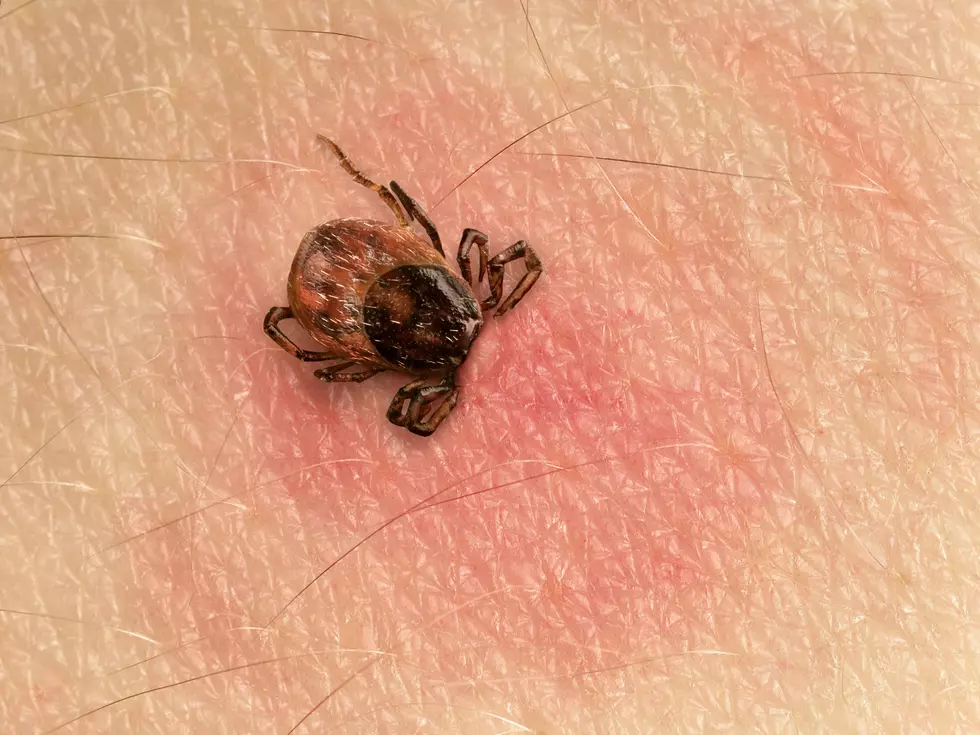
Tick Carrying Deadly Brain Swelling Virus Bites Two Near Area
Two people just outside the Hudson Valley were diagnosed with an extremely rare tick-borne brain swelling virus. One of the two died.
On Saturday, the Sussex County Division of Health announced they are currently investigating two confirmed cases of the Powassan virus in the New Jersey county which borders Orange County in New York.
The Powassan virus is spread by the same deer tick that carries Lyme disease. Powassan, which in some cases has been fatal, attacks the nervous system and can cause dangerous brain swelling.
There is currently no treatment for the virus, which according to the CDC kills around 10 percent of people who become sick. Half are left with permanent neurological problems.
Armand Desormeaux, 80, died days after he was diagnosed with Powassan virus, his daughter told the New Jersey Herald. According to his daughter, the veteran was in good health until he was bitten by a tick. His official cause of death hasn't been announced.
According to his obituary, Desormeaux was born in the Captial Region and loved taking trips to the Monticello Casino.
It's unclear who the second Sussex County resident diagnosed with Powassan is, but Desormeaux's daughter wrote on Facebook she was "told there was another person living within a 5-mile radius of our house in his 20's who tested positive for the virus but survived with severe neurologic issue."
Signs and symptoms of infection can include fever, headache, vomiting, weakness, confusion, seizures and memory loss.
People with severe cases of the virus often need to be hospitalized to receive respiratory support, intravenous fluids, or medications to reduce swelling in the brain, according to the CDC.
In 2017, the last year on record, there were 33 people diagnosed with the virus in the United States. 16 of those 33 live in New York, according to the CDC. Two people died from the virus.
In 2016, 21 people were diagnosed with the virus across the United States. Three died from the virus. In 2015, there were six cases of the Powassan virus.
In 2018, Hudson Valley Post reported on residents in Dutchess County and Columbia County who were diagnosed with the Powassan virus.
You can reduce your risk of being infected by taking the following precautions:
- Using tick repellents
- Wearing long sleeves and pants
- Avoiding bushy and wooded areas
- Thorough tick checks after spending time outdoors.
There are no vaccines to prevent or medicines to treat Powassan virus infection. People with severe Powassan virus disease often need to be hospitalized to receive support with breathing and swelling in and around the brain.
- New Information About Hudson Valley Fire Chief's Fatal Crash
- Tick Carrying Deadly Brain Swelling Virus Bites Two Near Area
- Hudson Valley Diner Workers To Walk Red Carpet
- Party in Hudson Valley Propelled Yankees to World Series Title
- Hudson Valley Cafe Owner Killed While Protecting Animals
- Hudson Valley Man Fatally Shot, 2 Others Shot Near Dunkin'
- Food Plant Should Produce Nearly 1,000 New Hudson Valley Jobs
More From Hudson Valley Post









